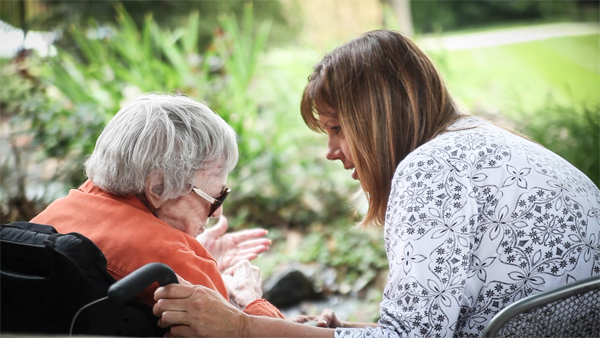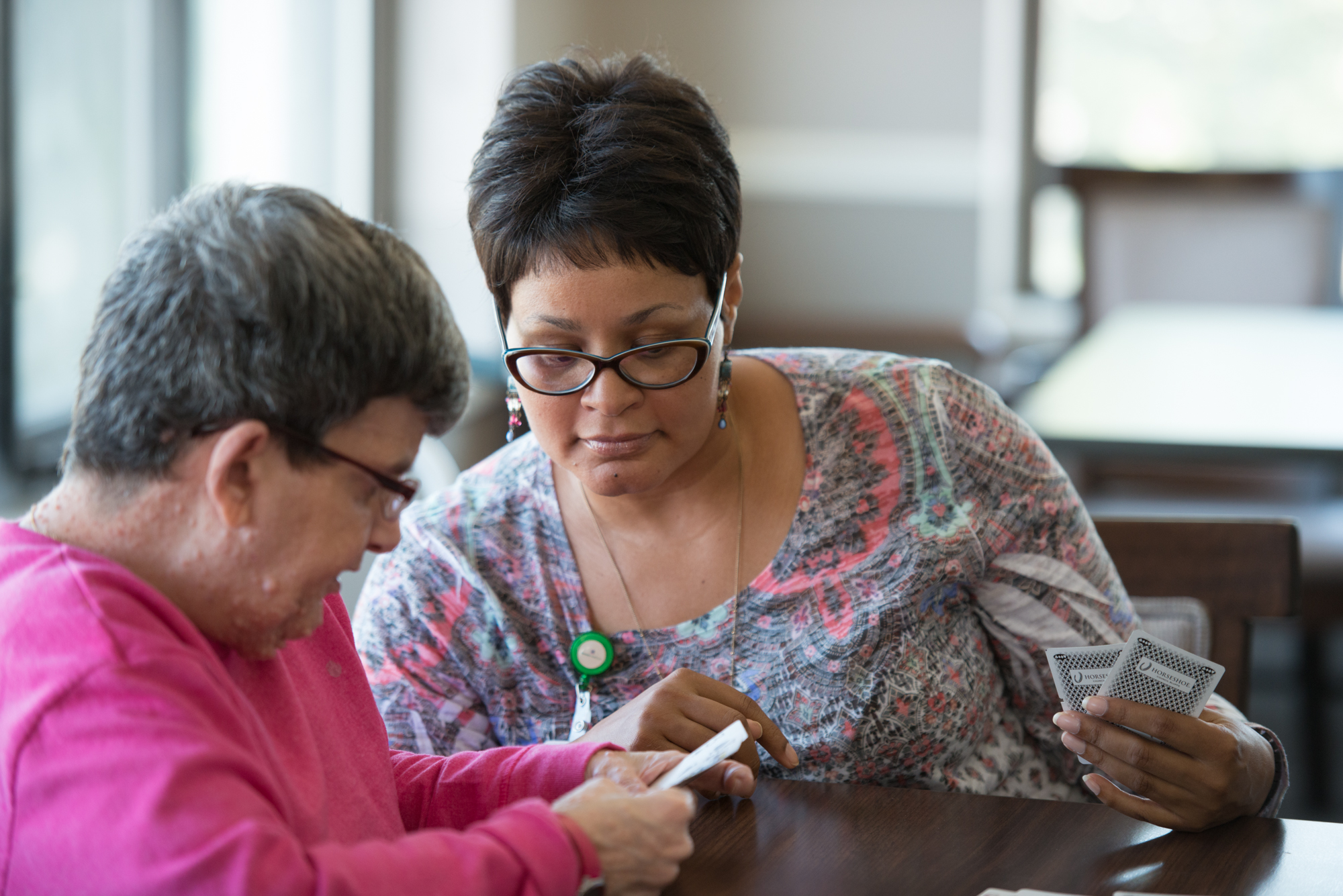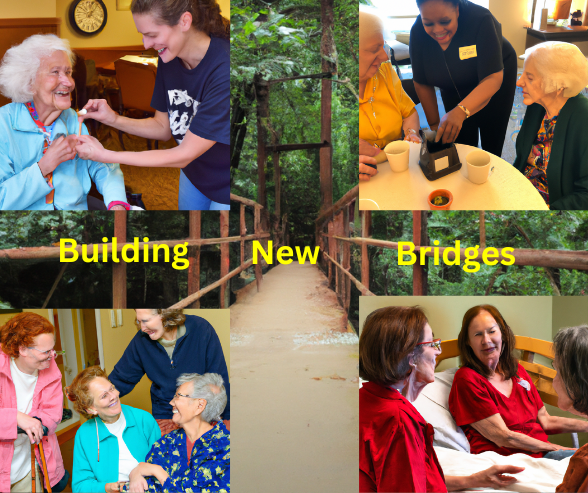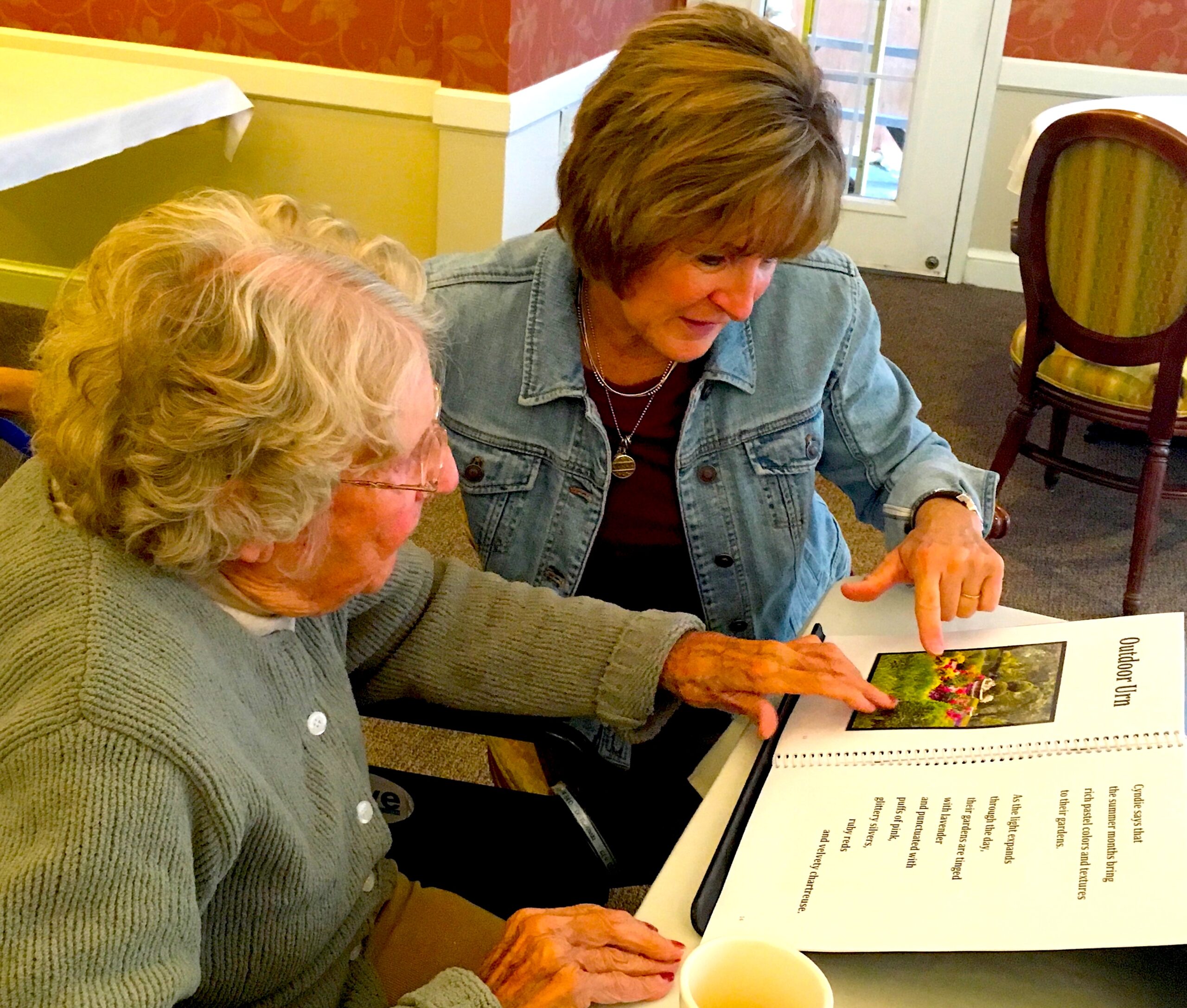Building Authentic Bonds
Introduction
Creating strong, authentic bonds can have a transformative impact on everyone involved, but it is especially powerful in the context of long-term care communities. Compassionate volunteers make authentic differences, commit their time and hearts to building relationships with residents and play an invaluable role in improving the quality of life for many individuals who might otherwise feel isolated and disconnected. Let’s explore the journey of these extraordinary volunteers and the significance of the connections they forge.
The Power of Presence: More Than Just a Visit

The essence of volunteerism in long-term care settings goes far beyond the act of simply visiting. It’s about being truly present, offering residents a sense of companionship that resonates on a deeper, more personal level. This presence means listening to stories, sharing silences comfortably, and demonstrating through actions that the person in front of you matters — not as a task or a good deed, but as a meaningful engagement between two human beings.

The Art of Listening: A Volunteer’s Greatest Tool
At the heart of forming authentic bonds is the art of listening. It’s not always about filling the air with words; sometimes, it’s about being an empathetic ear, allowing residents to express their thoughts, fears, joys, and memories. Volunteers who master the art of listening help residents feel heard and validated, which is a precious gift in an environment where they might often feel overlooked.
Stories of Impact: Volunteer Spotlights
John’s Journey to Friendship: John started volunteering with the intent of “giving back,” but he soon realized he was receiving much more. His weekly visits with Mr. Thompson became a cherished ritual for both. As their communication grew, so did their respect and fondness for each other.
Maria’s Melodies: Maria brought her love for coloring and music to the care home. During her visits she recognized one of the residents knew many of the famous Motown songs by heart. She decided to add that aspect to her coloring sessions. Her decision led to a community-wide weekly event that sparked conversations among the residents’ pasts, igniting memories, and forming a camaraderie rooted in shared cultural moments.
Emma’s Empathy: Emma, a young volunteer, showed that age is just a number when it comes to compassion. Her weekly reading sessions with an older woman bridged generational gaps and built a community within the care home. The young volunteer was experiencing unconditional acceptance and love.
Training for Depth: The Role of Training in Volunteerism
To foster these bonds, volunteers undergo training that goes beyond the basics of do’s and don’ts. Effective volunteer training programs cover:
- Active Listening Skills: Teaching volunteers how to listen actively and with empathy to understand and engage with residents’ stories and needs.
- Emotional Intelligence: Cultivating an awareness of one’s own emotions and the emotions of others to interact with sensitivity and understanding.
- Cultural Competence: Equipping volunteers with the knowledge to respect and celebrate the diverse backgrounds and histories of residents.
- Boundaries and Ethics: Understanding the importance of maintaining professional boundaries while forming personal connections.
The Research Behind the Relationship
Numerous studies underscore the importance of social interaction in long-term care communities. Research indicates that authentic relationships between volunteers and residents can lead to:
- Improved Mental Health: Reduction in symptoms of depression and a general uplift in mood.
- Enhanced Physical Health: Some studies suggest that socialization can contribute to better physical health outcomes.
- Cognitive Stimulation: Engaging conversations and activities can help keep residents’ minds active and sharp.
- Emotional Support: A strong volunteer-resident bond provides emotional support, which is crucial for residents who may feel isolated from their former communities.
Volunteer Voices: Testimonials of Transformation
Volunteers often speak of the profound personal growth they experience through their service. Many describe a newfound sense of purpose, perspective on life, and appreciation for the wisdom and resilience of the elderly residents in long-term care communities.
Volunteers, through their interactions, learn the value of patience, the beauty of listening, and the art of meaningful conversation. They often share stories of how their initial intention to brighten someone else’s day transformed into mutual exchanges of joy, wisdom, and even healing.
As they become more attuned to the needs and stories of the residents, volunteers discover the deep impact of authentic relationships on combating loneliness and fostering a sense of belonging. Their testimonials highlight not just the visible changes in the lives of the residents, but also the invisible changes within themselves. This journey of transformation underscores the reciprocal nature of volunteering, where giving and receiving become indistinguishable, and both volunteer and resident are enriched by the connection.
Through their voices, the message is clear: volunteering in long-term care communities is not just about providing company; it’s about creating lasting bonds that nourish the human spirit on both sides.
A Call to Action
In highlighting the power of volunteerism in long-term care communities, NALTCV extends a call to action. There is a place for everyone willing to lend their time, their ears, and their hearts. Whether it’s through sharing a hobby, or simply having a conversation, every moment spent with a resident can brighten their day and leave a lasting imprint on their lives.
Joining the Ranks: How You Can Get Involved
For those feeling the pull to make a difference, getting involved is just a few steps away. Reach out to NALTCV to learn how to get started. Enroll in the NALTCV volunteer training course, and prepare to embark on a journey that promises to be as transformative for you as it is for those you assist.
The training is designed to equip you with the skills and knowledge necessary to forge authentic relationships with residents, understanding their unique stories and needs. By volunteering, you not only contribute to mitigating the profound loneliness experienced by many in long-term care, but also become part of a larger movement toward compassion and connection in our society.

Volunteers play a critical role in bridging the gap between long-term care residents and the wider community. They remind us that everyone, regardless of age or circumstance, desires companionship, respect, and love. As a volunteer, you’ll find that the simple act of showing up and being present can have a monumental impact on someone’s life.
So, if you’re looking for a way to give back, to learn, and to grow, consider becoming a “Companion”volunteer. It’s an opportunity to touch lives, including your own, in profound and meaningful ways. The National Association of Long-Term Care Volunteers (NALTCV) is here to support you every step of the way, from your initial interest to becoming a seasoned companion who brings joy and companionship to those who need it most.
A Special Invitation to Long-Term Care Community Managers
For those at the helm of managing volunteers within long-term care communities, the National Association of Long-Term Care Volunteers (NALTCV) extends a special invitation to collaborate. Your role in facilitating and nurturing volunteer programs is vital to their success and the well-being of your residents. We encourage you to embrace and promote the spirit of volunteerism, creating a welcoming and supportive environment for volunteers to thrive.
Engaging with NALTCV provides access to resources, training materials, and a network of peers dedicated to the cause of enhancing the lives of long-term care residents through authentic companionship. By partnering with us, you can help ensure that your volunteers are well-prepared, motivated, and supported throughout their journey. This collaboration not only enriches the volunteer experience but also amplifies the positive impact on your residents’ lives.
We invite you to reach out to NALTCV to explore how we can work together to support and expand your volunteer programs. Together, we can build a community of care that values every individual, fostering connections that transcend the boundaries of long-term care facilities. Let’s join forces to champion the cause of companionship and volunteerism, making a significant difference in the lives of those we serve.







